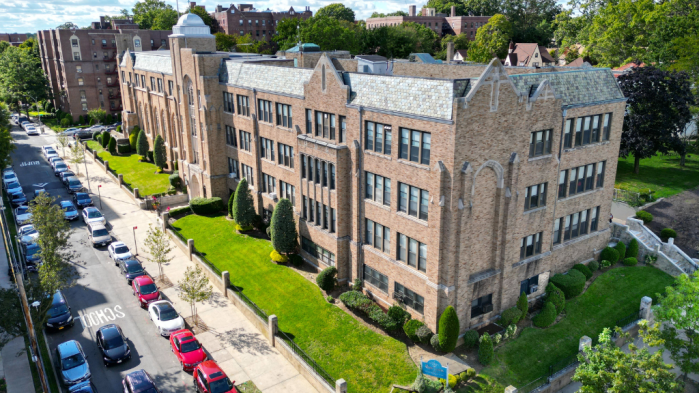As North Shore Towers hosted its annual Yom Hashoah, or Holocaust memorial event recently, the victims were remembered while survivors were encouraged to share their stories.
“All we know for certain is that we have a duty to remember for the sake of those who perished so that they may not be forgotten, for the sake of those in attendance who survived it so that they may know that they are not alone in their sorrow, for our own sakes so that we may not be blind to the evil of which human beings are capable and for the sake of future generations…,” said Manek Werdinger, a Holocaust survivor and resident of North Shore Towers.
Werdinger, an event organizer, also made a request of those in attendance on behalf of survivors and those killed – “Do not forget us.”
Rabbi Michael Klayman, of the Lake Success Jewish Center, delivered an invocation and spoke of the “responsibility to bear witness.” He encouraged survivors, as well as relatives, those who fought the Nazis or any other witnesses, to share their stories.
“You must devote whatever time you can to making our children bear witness to your testimony, to your story,” Klayman said. “On this day, when we commemorate what is unfathomable…we hope that as you continue to tell your stories our children will bear witness so that no more killing in the future will ever be necessary.”
During the ceremony, Holocaust survivors lit six candles to represent the six million Jews killed.
“When the Jews of Europe were rounded up in the ghettos, they became so much more than a statistic,” said speaker Eneas Arkawy. “They became a beautiful and haunting legacy, which it is our duty to cherish and remember.”
Dr. Kristine Chiger Keren, a Holocaust survivor and author of The Girl in the Green Sweater, also shared her personal experiences. She was part of a small group that hit in the sewers of Poland during the Holocaust.
“I’m very moved to be invited to participate in this celebration,” Keren said.
Keren described her living conditions as “unimaginable” while she was in hiding. Catholic Polish sewer workers brought food but they were only able to have a quarter of a cup of water every day. They also had to constantly battle rats during their 14-month stay.
“We lived in darkness surrounded by filth,” she said.
Keren explained that her motivation for writing her memoir was the questions her children and grandchildren asked about her survival. She said that she wanted to help teach future generations about the Holocaust, which she added must not be repeated again.
“This sort is an inspiration and is showing that hope, endurance and perseverance can succeed in winning the fight for life,” Keren said. “Only by knowing the past can we build a safe future…[without] discrimination and hate.”


































